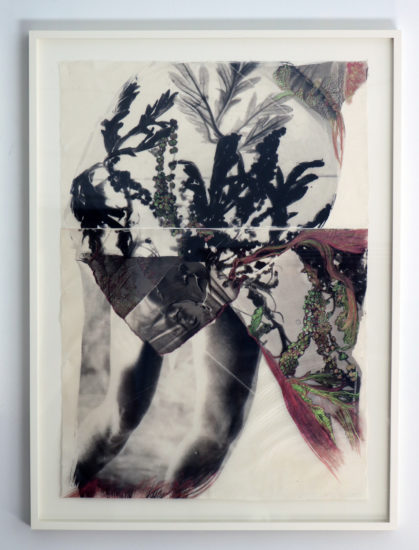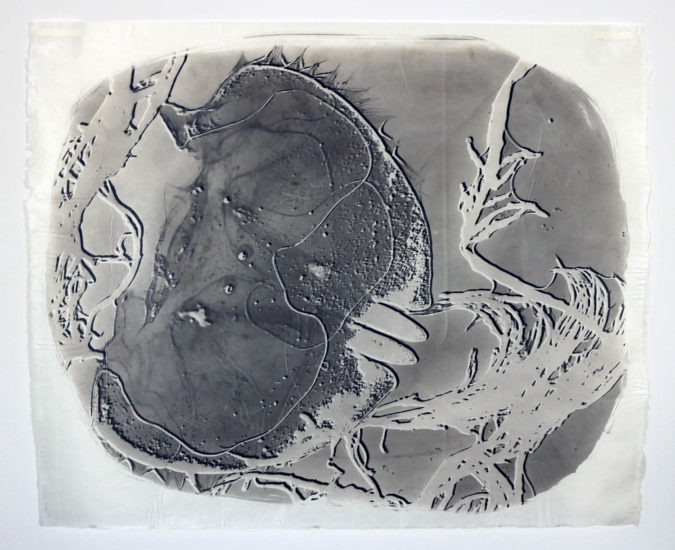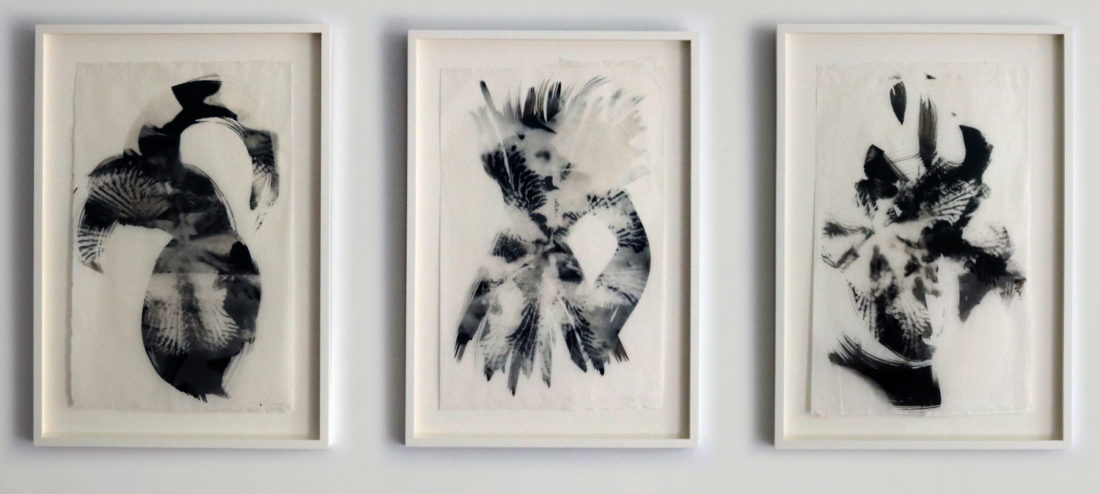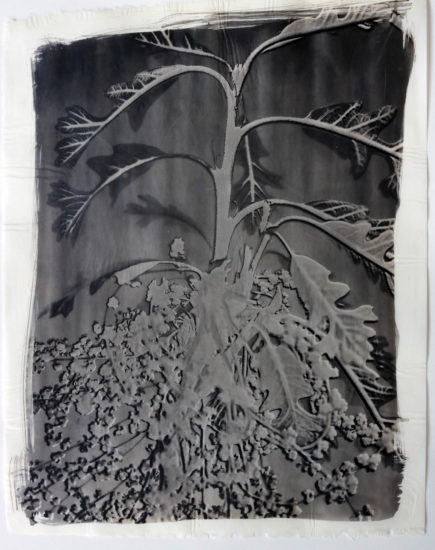(Nature In) Lockdown Exhibition: Ocean Totems
Strands of seaweed, horseshoe crabs, shells, broken glass–ocean and human debris–the viscosity of salt water teeming with life–ebb and flow. When animals left the ocean for land, they took the sea with them. Our veins carry the same mixture of sodium, potassium and calcium as sea water. The ocean is our origin.
My hands forage for what the sea gives. I create prints to express its marvels.
A few of my palladium prints that I created from camera-less negatives of these sea fragments are part of an online exhibition https://fayddigital.com/Nature-in-lockdown published by this online magazine which works at the intersection of art, design and the environment.
Iris Series for GOS 2021
On October 16th and 17th I am thrilled to display my new Iris series at Gowanus Open Studios, Brooklyn, NY from 12 – 6pm each afternoon. The address is Shapeshifter Lab, 18 Whitwell Place, Brooklyn, NY 11215.
My Iris Triptych series explores new ways to capture these flowers. Every year when the Iris blooms in Spring, I attempt to evoke their beauty and their spiritual essence. In Japan, Iris is revered for its purifying properties. In many cultures the Iris stands for wisdom, trust, hope and valor. What better flower to bloom as Spring begins?
This year I attempted to display this flower’s energy. Through the calligraphic movement I employed to paint the palladium on the Japanese gampi paper to the exposure using sunlight, my thought was to convey the elegance and dynamism of these flowers.
Three Works in Curated Exhibit in GOS 2021

Yvena Despagne, a curator with Arts Gowanus, has chosen three of my works for “Oc.cu.pied”, an exhibition of art by women. The three works are “Blossoming Oak”, “Can We Breathe?” or “Chimera” and “Into the Earth”. I have used the title “Chimera” as an alternate title for this work as in Greek mythology chimeras were human hybrids with appendages from the natural world. Here this woman is growing blossoming Oak branches as she gives birth to her baby. Dates are October 16 and 17, the same timing as the Arts Gowanus Open Studios. Atelier Canal, 287 Third Ave., Brooklyn, NY 11215 is the location.
Framing my work finishes the work for me. The photograph here is the work “Can We Breathe” in its frame, ready to exhibit. I have given this work this name because we live in an interdependent state with trees. Through photosynthesis, trees transform carbon dioxide into oxygen which we breathe. This work is collaged from printing negatives of a woman, a baby and the blossoming oaks with palladium on Japanese gampi paper. I painted with Kremer pearlescent water color to add the dimension of green for leaves and red for our blood.
My Work on Artfare
I have been chosen to be an exhibiting artist on the digital platform “Artfare”, artfare.com/alice-garik
I now have the Iris series which I describe in a previous post and Oak Blossoms on the Artfare site. In the coming weeks I will add more works to be featured on this site.
The artists on Artfare are selected for their professionalism and artistry. Please visit the site when you have a moment.
Dreaming of Dragonflies

I work with animals, insects and plants and collage them with photographs I have done of our bodies to show our unity, in this time of climate crisis, with the natural world. I always enjoy watching dragonflies flying over ponds of water. I marvel at their wing span as they navigate near the water’s surface. I love how their wings reflect light as they flit and hover over water.
Dragonflies are known and sometimes revered all over the world. There are as many as 5000 species of dragonfly. Learning how many cultures have myths and beliefs associated with dragonflies has increased my own admiration and love for them.
One of the names of Japan is Akitsushima which means island of dragonflies. For Aboriginals in Australia dragonflies symbolize dancing and a reminder for humans to look within. In Welsh mythology, the word for dragonfly means snake’s servant, as they are often seen in the same environs as snakes. In the South West of the U.S., native Americans see dragonflies as the helper to bring rain and water in the dry areas. Celtic mythology has 23 names for the dragonfly.
In all these beliefs and myths, dragonflies are associated with change and transformation, particularly to bring more light and joy into our lives.
I have done this installation of dragonfly wings with close up of Iris flowers in palladium prints on Japanese gampi papers.




